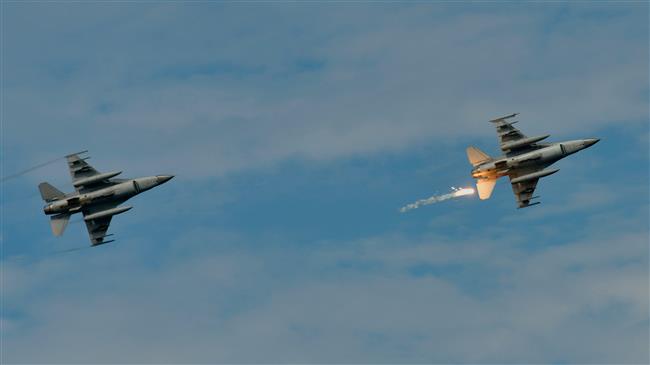US State Department approves $8 billion fighter jet sale to Taiwan
The US State Department has approved a possible $8 billion sale of F-16 fighter jets to Taiwan, one of the biggest arms deals between Washington and Taipei which is expected to increase tensions with China.
The potential deal is for 66 fighter jets, 75 General Electric Co engines, as well as other systems, the State Department said Tuesday.
US Secretary of State Mike Pompeo said in a statement that President Donald Trump had authorized the proposed sale after Congress was notified last week.
China has already denounced the widely discussed arms deal with Taiwan, which Beijing considers a renegade province. It has warned of unspecified “countermeasures.”
China has sovereignty over the island and almost all world countries recognize that sovereignty under the policy known as One China.
The US, too, recognizes Chinese sovereignty over the island, but it has long courted Taipei in an attempt to counter Beijing.
In a statement, the US Defense Security Cooperation Agency, which oversees American foreign military sales, said Taiwan's purchase of the war planes "will not alter the basic military balance in the region."
"This proposed sale will contribute to the recipient's capability to provide for the defense of its airspace, regional security, and interoperability with the United States," the statement said.
China's foreign ministry spokesperson Geng Shuang said Monday that US arms sales to Taiwan "severely violate" agreements between Washington and Beijing and "constitute severe interference in China's internal affairs."
Washington should "immediately cancel the planned arms sales, and stop selling weapons and military contact with Taiwan," he said.
The sale, which is approved at a particularly consequential time in US-China relations, is expected to further escalate tensions on an already bitter trade war.
Trump initiated a trade war with China last year, when he first imposed unusually heavy tariffs on imports from the country, seeking extensive structural changes from Beijing and alleging that it had engaged in intellectual property theft over many years, which China vehemently denies.
‘Abhorrent’: Oxfam says only 12 trucks delivered aid in North Gaza since Oct.
VIDEO | Leader receives religious eulogists on Hazrat Fatima birth anniv.
Pope Francis slams Israel’s ‘machine-gunning’ of Gaza children
US hostage-taking of Iranian nationals violation of intl. law: Deputy FM
VIDEO | Carol Singers for Palestine on London’s Parliament Square
Ansarullah says ‘Israeli terrorists’ incapable of confronting Yemen, warns of secret weapons
VIDEO | Yemenis praise the military for its successful operations against Israel
VIDEO | Israel continues to bomb Gaza homes











 This makes it easy to access the Press TV website
This makes it easy to access the Press TV website